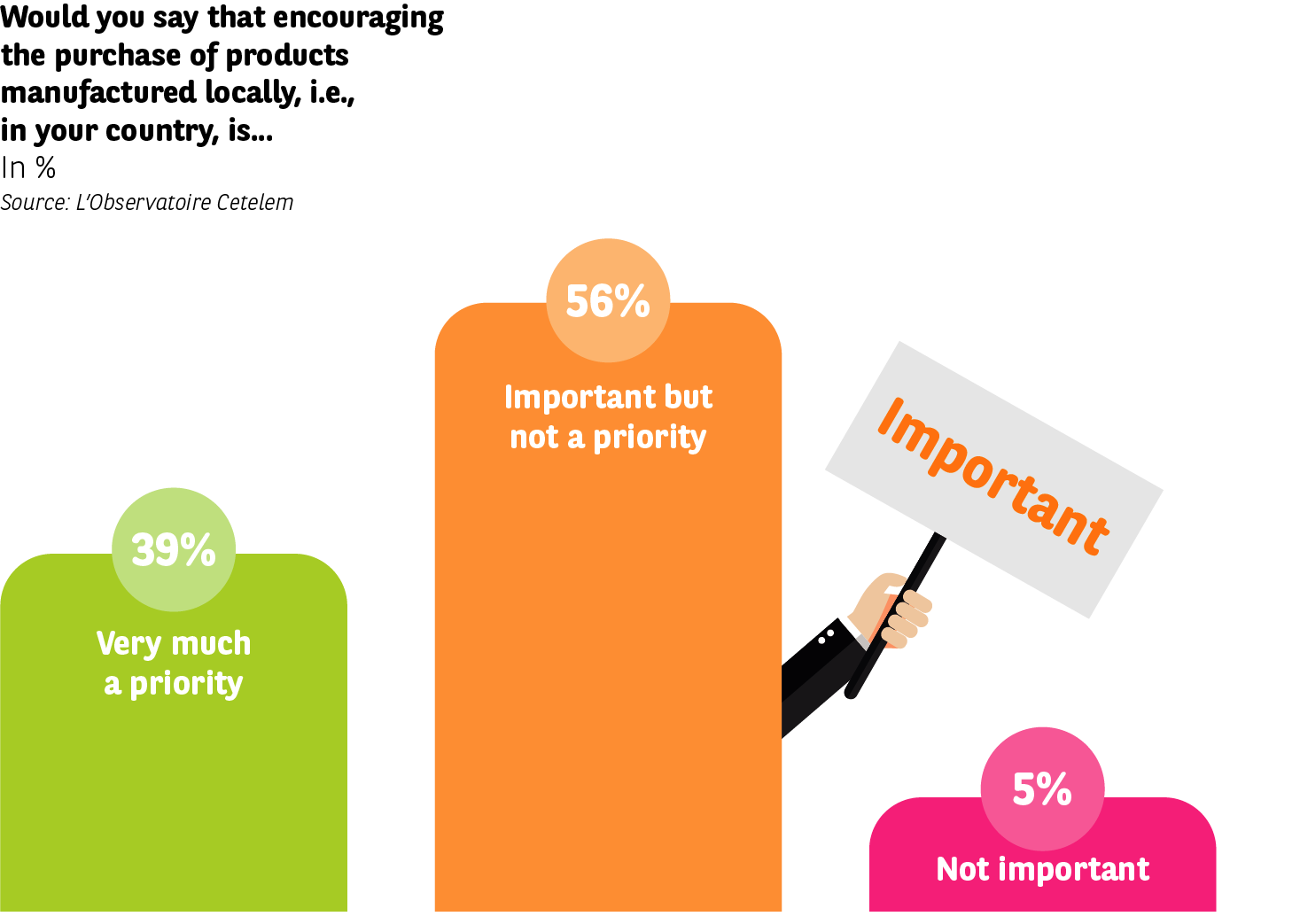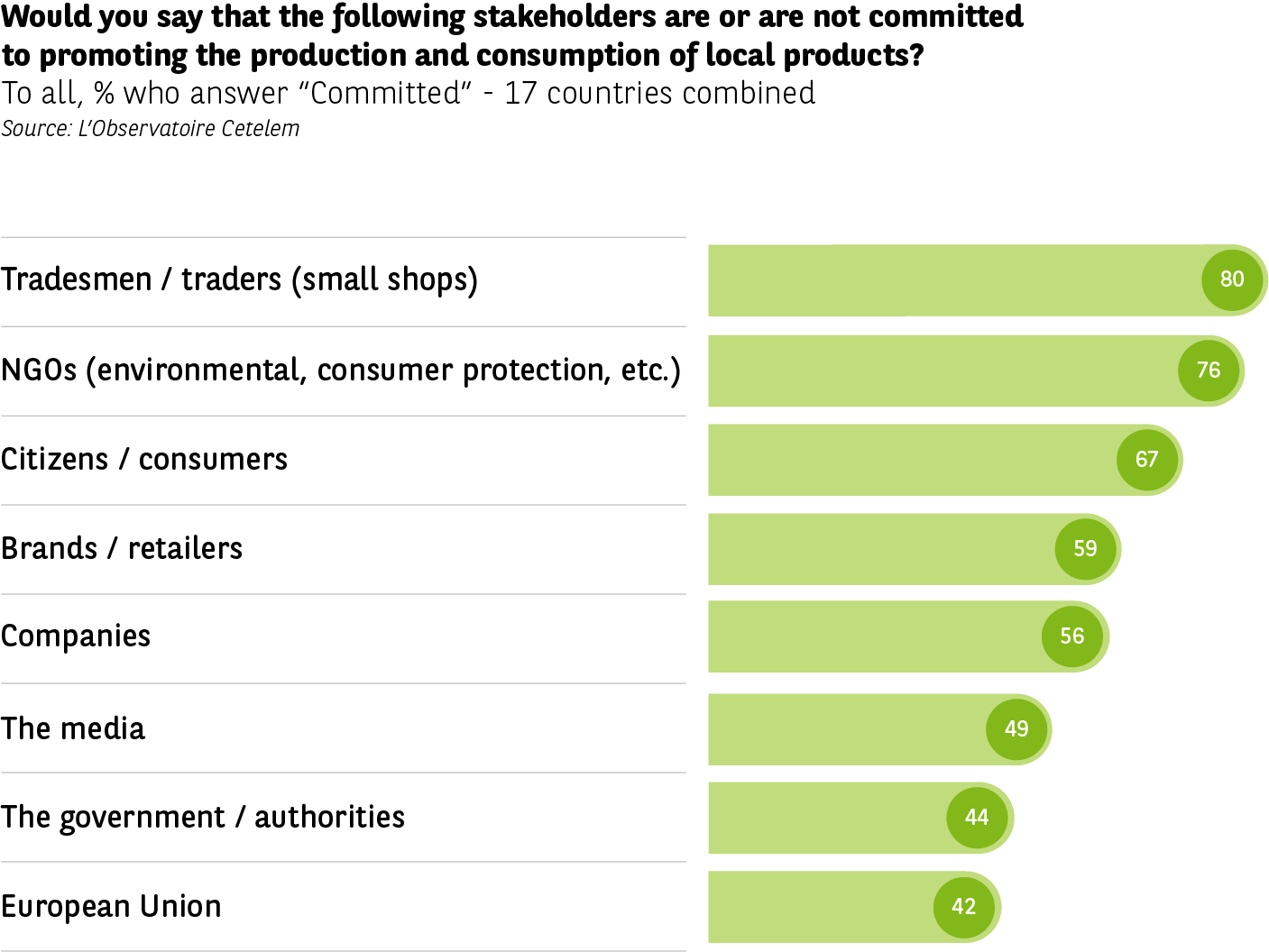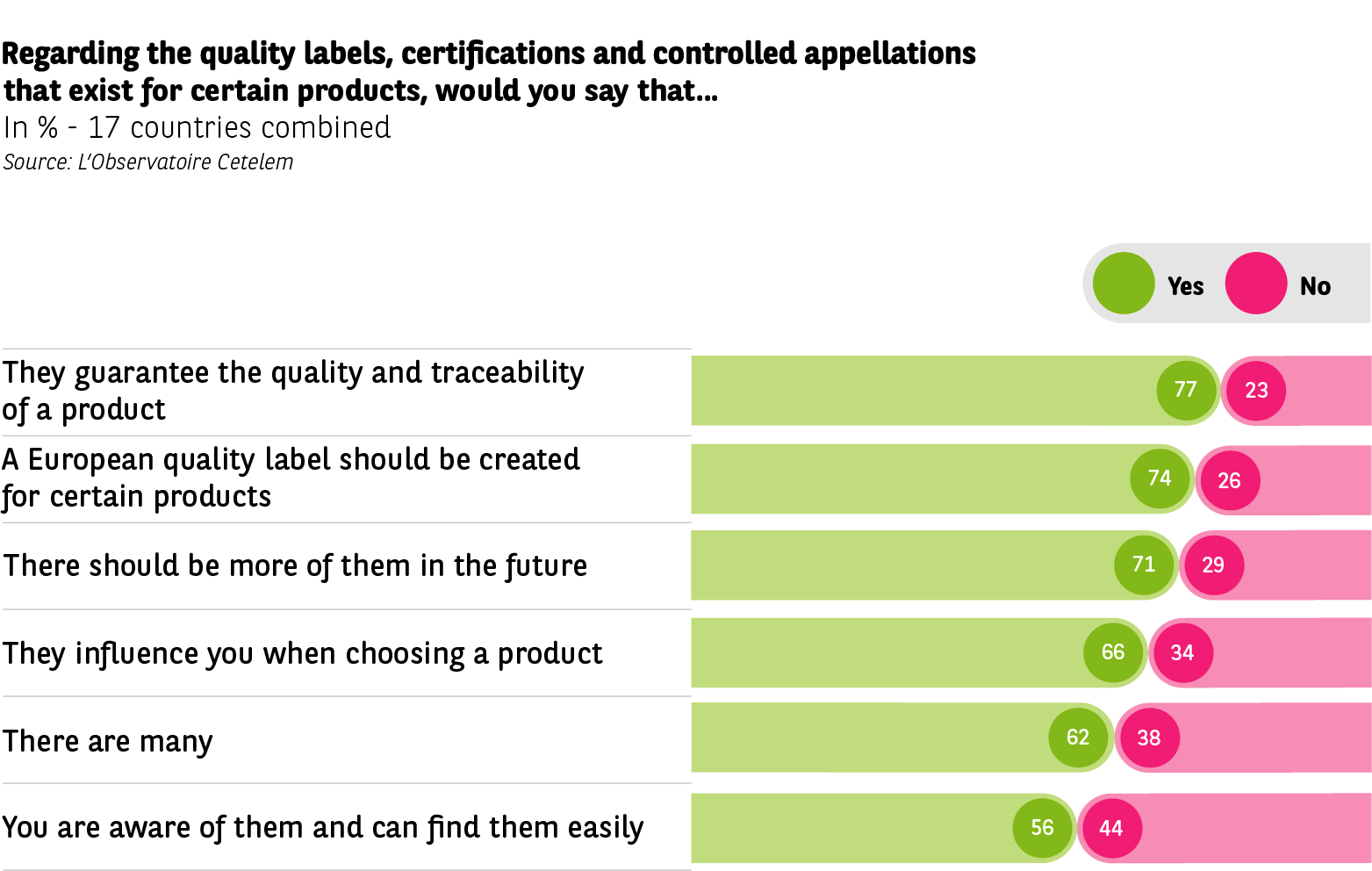A commitment to support local consumption


AN ENCOURAGING B+ GRADE
European consumers believe in local consumption This belief translates chiefly into a desire to see the purchase of local products encouraged.
95% of Europeans are of this opinion and 39% deem it to be a priority. The Italians are of course the biggest partisans of this practice (58% see it as priority), along with the Portuguese, the French, the Bulgarians and the Romanians. Conversely, the Czechs (25%), the Belgians and the Poles (26%) do not view it as a priority.
Products that are clearly identified
While they would like to see more being done for local consumption and for it to be done better, this is already a tangible reality in the eyes of consumers. 66% believe that many products of this kind are available and 61% that they are easy to identify. Better still, 69% think that they are more common than in the past and 67% that their availability will improve in the future, regardless of the type of sales outlet. As standard-bearers for local consumption, the Italians are by far the most likely to state that they are widely available (79%). Conversely, the Czechs and Portuguese have more trouble tracking them down (49% and 52%). A slight majority of French respondents are of this belief (57%). And the French, along with the Swedes, also declare that the future of local products is bright, with 76% suggesting that their presence on the market will grow.
A DESIRE FOR MORE PROACTIVE GOVERNMENT POLICY
As for securing this better future, Europeans express both positive and negative views on the actors involved in local consumption, thus highlighting a gap between the commitment of individuals and that shown by institutions. The closer these actors are, the more engaged they tend to be.
Tradespeople, NGOs and citizen-consumers are the three most committed categories.
The engagement of tradespeople (80% on average) is most widely recognized on the Iberian peninsula, while it is viewed much less positively in Denmark and Germany. The work done by NGOs to boost local consumption (76%) is lauded in Spain, France and Norway, but less so in the Czech Republic. And the efforts of citizen-consumers (67%) are applauded in Slovakia and Sweden, whereas Austria and Denmark show less enthusiasm.
A second group comprising brands / retailers and companies also post a score of over 50% (59% and 56%). The pair receive plaudits from Eastern European countries in particular.
Lastly, the media, governments and the European Union are deemed to be the least committed to the cause (49%, 44% and 42%, respectively). While they are vigorously defended by the Norwegians and Slovaks, the Germans, French and Italians are the most critical. Is it any coincidence that these are three of the founding nations of the European Union?
QUALITY LABELS BOOST CONFIDENCE
Europe’s relative lack of commitment to local consumption is also highlighted when broaching the topic of quality labels.
Although 77% of Europeans believe that these are a reliable guarantee of product quality and traceability, 74% declare that the creation of a European label would boost local consumption.
62% believe that there are many. But “many” is obviously not “enough”, because 71% of consumers would like there to be more of them in the future. So a higher number of quality labels, but also labels that are more easily identifiable, given that only a fraction more than 1 in 2 Europeans find them easy to spot. But the quality labels that do exist are seen as effective when it comes to making a purchase, because 66% of respondents believe that they influence their decisions.
It is worth noting that one country in particular stands apart in appreciating and supporting these labels. “Made in Italia” and all its potential variations seem to be an integral part of the country. Indeed, Italian consumers express the strongest opinions across the board. 69% find it easy to identify labels and only 54% believe that there are many, so it makes sense that 79% hope there will be more in the future. To top it all off, 89% of Italians see them as a guarantee of quality and traceability.



